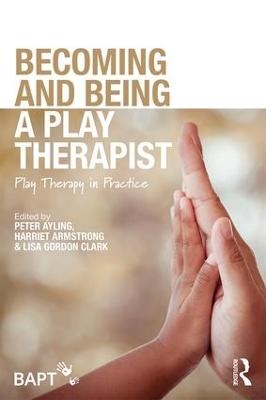
Becoming and Being a Play Therapist
Routledge (Verlag)
978-1-138-56097-0 (ISBN)
Divided into three parts, the book is designed to build on and consolidate the principles and professional/personal competences of play therapy practice. Key topics include:
Training and establishing oneself as a play therapist in the UK, a comprehensive guide.
The improvisational practitioner; therapist responses to resistance and aggressive play.
Systemic considerations in play therapy with birth families and adopters; advantages and challenges.
Case-study based explorations of play therapy across a range of service user groups, including childhood trauma, bereavement and sexual abuse, and agency contexts, including school and CAMHS settings.
Becoming and Being a Play Therapist will be relevant both for play therapy trainees and for qualified play therapists as well as for related professionals.
Peter Ayling is a qualified play therapist and social worker who has specialised in working with children and young people within the care system for 25 years. He worked for 14 years within a Child and Adolescent Mental Health Service (CAMHS) for Looked After Children. Pete currently works as a Senior Lecturer in Social Work and maintains a small, private play therapy practice. Harriet Armstrong obtained a Master's Degree in Play Therapy from the University of Roehampton in 2009. She has since worked as a play therapist privately and in schools with children who have suffered a wide range of trauma, disorders and difficulties. Harriet has been Chair of PR and Communications of BAPT and is currently Joint Vice-Chair. Lisa Gordon Clark trained as a play therapist at Roehampton, following several years as a primary school teacher, and has since worked both in private practice and as resident play therapist at a Child and Family Centre in London. Lisa is currently Programme Convener of the Play Therapy MA at the University of Roehampton and Fellow of the HEA.
Introduction: Peter Ayling, Harriet Armstrong and Lisa Gordon Clark
Part 1: Becoming a Play Therapist
Chapter 1. Lisa Gordon Clark - Training Issues: Before, During and After
Chapter 2 Julie McCann: The play therapist's personal therapy
Chapter 3. Carol Platteuw - The Role of Clinical Supervision for Play Therapy Practice
Chapter 4. Anne Fullalove - The play therapy room: why it matters
Chapter 5. Harriet Armstrong - Setting up in Independent Practice as a Play Therapist
Part 2: Being a Play Therapist
Chapter 6. Linda St Louis - Being an ethical play therapist
Chapter 7. Karen McInnes - Being a playful therapist
Chapter 8. Simon Kerr-Edwards – Being an improvisational play therapist
Chapter 9. Peter Ayling - Containing feelings and setting limits in play therapy: working with aggression
Chapter 10. Jenny Reid - Time-limited play therapy
Part III- Play therapy in practice
Chapter 11. Ruth Lazarus and Carrie Waldron - Play Therapy within a CAMHS Setting
Chapter 12. Sonia Murray - Play Therapy in Schools
Chapter 13. Sharon Pearce: Narrative Group Play Therapy in a School Setting
Chapter 14. Tim Woodhouse - Play therapy with children affected by sexual abuse: developing awareness, safety and trust
Chapter 15. Chris Stone – Working with Bereavement and Loss in Play Therapy
Chapter 16. Lisa Waycott and Claire Carbis - Integrative Approaches to Working with Trauma
Chapter 17. Stuart Daniel - Play therapy and Polyvagal Theory: towards self-regulation for children with paediatric medical trauma
Chapter 18. Debra May: Working with Child Trauma through EMDR and play therapy
Chapter 19: Berni Stringer - Relational Approaches to play therapy: supporting adoptive and foster carers and their families
Chapter 20. Trudi Cowper – Working with Parents and Carers: Child Parent Relationship Therapy
Appendix 1: BAPT play therapy core competences
Appendix 2: BAPT's ethical basis for good practice in play therapy
Appendix 3: Sample contract
Index
| Erscheinungsdatum | 26.02.2019 |
|---|---|
| Zusatzinfo | 3 Tables, black and white; 7 Illustrations, black and white |
| Verlagsort | London |
| Sprache | englisch |
| Maße | 156 x 234 mm |
| Gewicht | 700 g |
| Themenwelt | Medizin / Pharmazie ► Medizinische Fachgebiete ► Psychiatrie / Psychotherapie |
| Medizin / Pharmazie ► Physiotherapie / Ergotherapie ► Ergotherapie | |
| ISBN-10 | 1-138-56097-9 / 1138560979 |
| ISBN-13 | 978-1-138-56097-0 / 9781138560970 |
| Zustand | Neuware |
| Haben Sie eine Frage zum Produkt? |
aus dem Bereich


